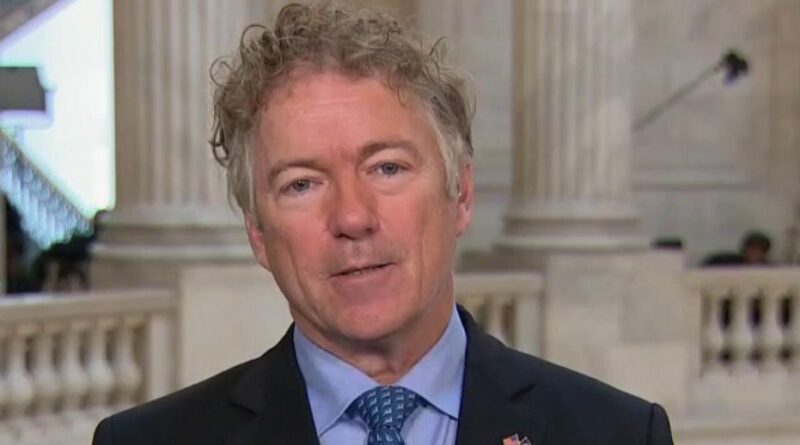Political crisis COVID created still going strong 2 years later
Rand Paul: Dr. Fauci’s claim lockdowns saved millions is false
Senate Health Committee member reacts to a new study that concludes COVID lockdowns did more harm than good on ‘America Reports.’
Among the greatest lies of the COVID crisis, and it’s a competitive category, high on the list was “It’s not about politics.” In fact, with the exception of loss of life, there is nothing that was as deeply affected by the pandemic as our politics.
Not only did governors exert unprecedented emergency powers, not only did COVID dominate the 2020 presidential election, but it also fundamentally transformed how Americans participate in politics.
Caution tape closes off a voting stall to help distance voters on Nov. 3, 2020, at the East End School in Portland, Maine. (AP Photo/Robert F. Bukaty)
As we mark two years since the onset of COVID, we need to think about what, if any elements, of our political life in the midst of an emergency we wish to make permanent features of American governance. Nowhere is this need more keen than in regard to the vast powers granted to the leaders of our states, some of which still linger.
With the stroke of a pen governors like New York’s Andrew Cuomo and California’s Gavin Newsome restricted the rights of their citizens to work, shop, go to church, go to school — you name it they banned it. That precedent has now been set. Should anything, be it climate change, or racism or “misinformation,” rise to the murky level of emergency, can these dictatorial powers be seized again?
Unfortunately, at the moment the answer appears to be yes. Prior to 2020 we imagined emergency powers as temporary and targeted, a matter of weeks not years. That is simply no longer true. Today, there is a pressing need for every state to codify in limited and strict ways how their governors can use this dangerous precedent in the future.
It has been rightly said by many that COVID occurring in a presidential election year was the worst possible timing, and it is true. Perverse incentives abounded on all sides to paint the pandemic in the colors of politics not public health. It exacerbated an existing trend in America of elections as existential crises.
This is new. In 1996 nobody thought the outcome of Bill Clinton vs Bob Dole would seal the fate of America forever. Now that kind of sentiment is a regular feature of our never-ending campaign season. We failed as a nation to come together on COVID because we can’t come together on anything. There is no time anymore to govern, only time to plot out the next election.
And even elections themselves were not immune to COVID. Across the country states changed voting laws on the fly, often without the input of state legislatures, to keep people safe while voting. We saw enhanced early voting, mail-in ballots and drop boxes proliferate in the name of public health. Today, Democrats, who think these changes benefited them, are seeking to codify them going forward. Even though this effort has failed nationally, in many states they will absolutely succeed.
The skids that led to these illiberal developments were greased by COVID hysteria. Once social media companies decided that censoring COVID information, even from scientists, was part of their duty to protect Americans, it was a short jump to “protecting” us from “dangerous” political speech.
The long story short is that the short story is long. The significant upheavals in our political life brought on by just two years of COVID will become permanent features if we do not quickly address and redress the excesses. The public health crisis is all but over, but the political crisis is only just beginning.
Source: Read Full Article





